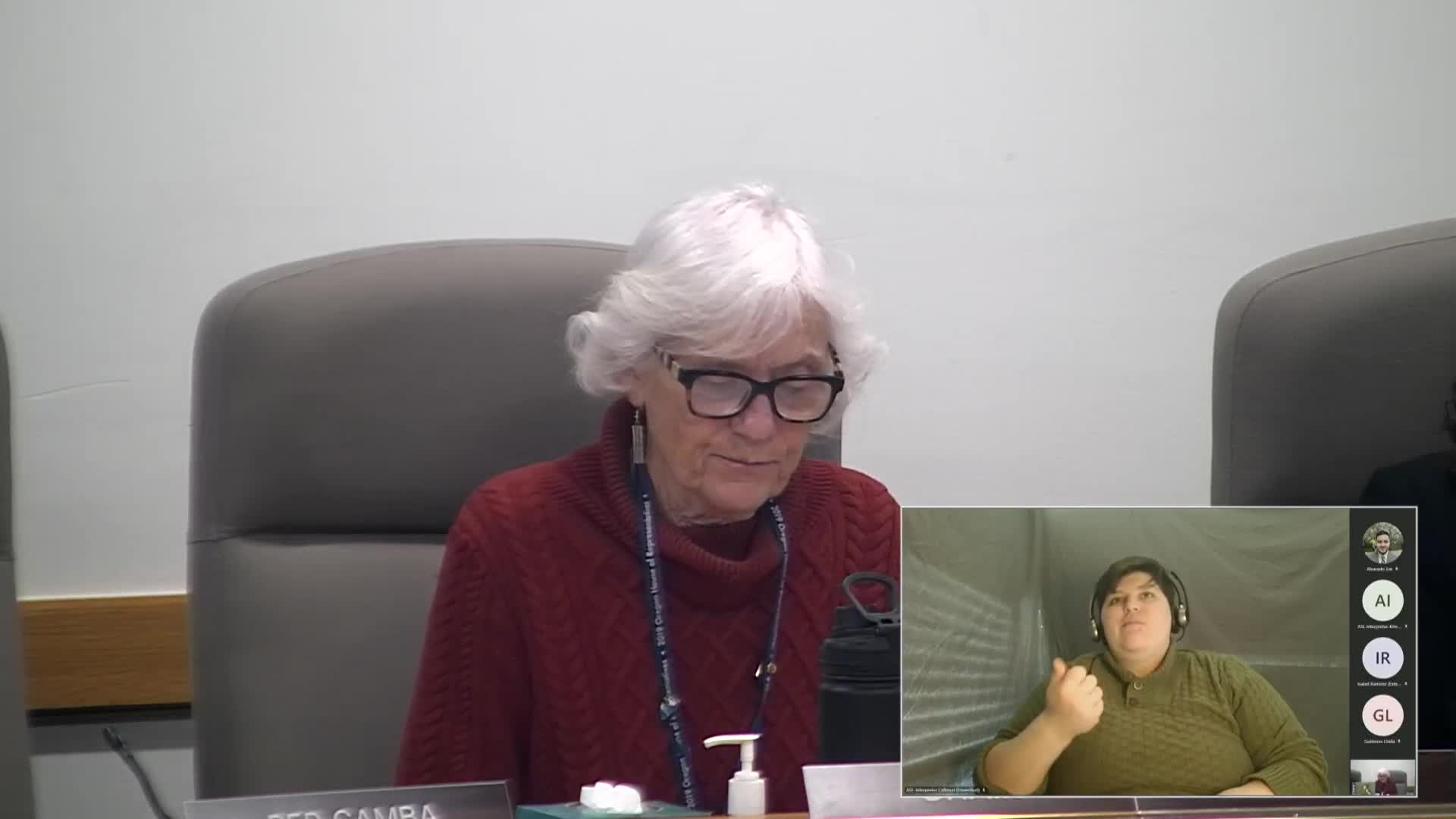House committee holds public hearing on Senate Bill 1129A to align urban-reserve rules with statute
Get AI-powered insights, summaries, and transcripts
Subscribe
Summary
The House Committee on Housing and Homelessness opened a public hearing April 28 on Senate Bill 1129A, a measure that would direct the Land Conservation and Development Commission to amend administrative rules governing how lands are prioritized for addition to urban reserves by Jan. 1, 2026.
The House Committee on Housing and Homelessness opened a public hearing April 28 on Senate Bill 1129A, a measure that would direct the Land Conservation and Development Commission to amend administrative rules governing how lands are prioritized for addition to urban reserves by Jan. 1, 2026. Senator Anthony Bridal, sponsor of the bill, told the committee the measure declares an emergency and would be effective on passage.
The bill, Bridal said, aims to reconcile a perceived mismatch between the urban‑reserve statute and existing administrative rules so cities can plan infrastructure and future growth more predictably. "The rules don't match the statute," Senator Bridal said, adding that the change is intended to help faster‑growing cities such as Bend use urban reserves as a tool for orderly expansion.
Eric Chancellor, speaking for the City of Bend, said the measure seeks to "balance housing production with resource protection via a long range planning tool called urban reserves." Chancellor described urban reserves as a tiered planning approach that identifies areas for future urban growth boundary expansions and said the proposed rule alignment would clarify how cities prioritize nonresource parcels and account for relative infrastructure costs.
Chancellor outlined two specific directions in the bill: allow prioritization that favors undeveloped, unpartitioned nonresource parcels over heavily partitioned parcels of the same size if doing so reduces infrastructure complexity and cost; and permit cities to consider relative infrastructure cost differences when deciding whether otherwise lower‑priority resource lands must be brought in earlier to enable practical and cost‑effective urbanization. He said the changes would not alter the statute's underlying prioritization of nonresource lands first, marginal lands next, and farm or forest resource lands last.
Committee members asked clarifying questions. Representative Gamba asked whether a developer could avoid the intended effect by buying farmland and letting it go fallow; Bridal and Chancellor said the bill's dash‑1 amendment removed language tied to "recent farm use" and they understood it would not change prioritization for exclusive farm use (EFU) lands. Representative Mannix noted legal limits on the legislature's authority over agency rules and asked whether the bill merely asks the Land Conservation and Development Commission to revisit rules; Bridal agreed the bill directs rulemaking but does not itself rewrite the administrative rules.
No formal vote or committee action was taken at the hearing. The committee recorded support for the bill from Bend and from groups such as Central Oregon Land Watch and home‑builders, according to presenters. The committee closed the public hearing and adjourned; Representative Breeze Iverson was noted as excused.
The bill would require the Land Conservation and Development Commission to initiate or complete rulemaking to align OAR with statutory language by Jan. 1, 2026, according to testimony. Sponsors and city staff said the intent is to give cities clearer authority to prefer parcels that are less partitioned or meaningfully less expensive to serve, without changing the statutory preservation priorities for farm and forest lands.
